Common Mini Split Smells: What They Mean And How To Fix Them
Why Does My Mini Split Smell Funny? Common Causes And Fixes
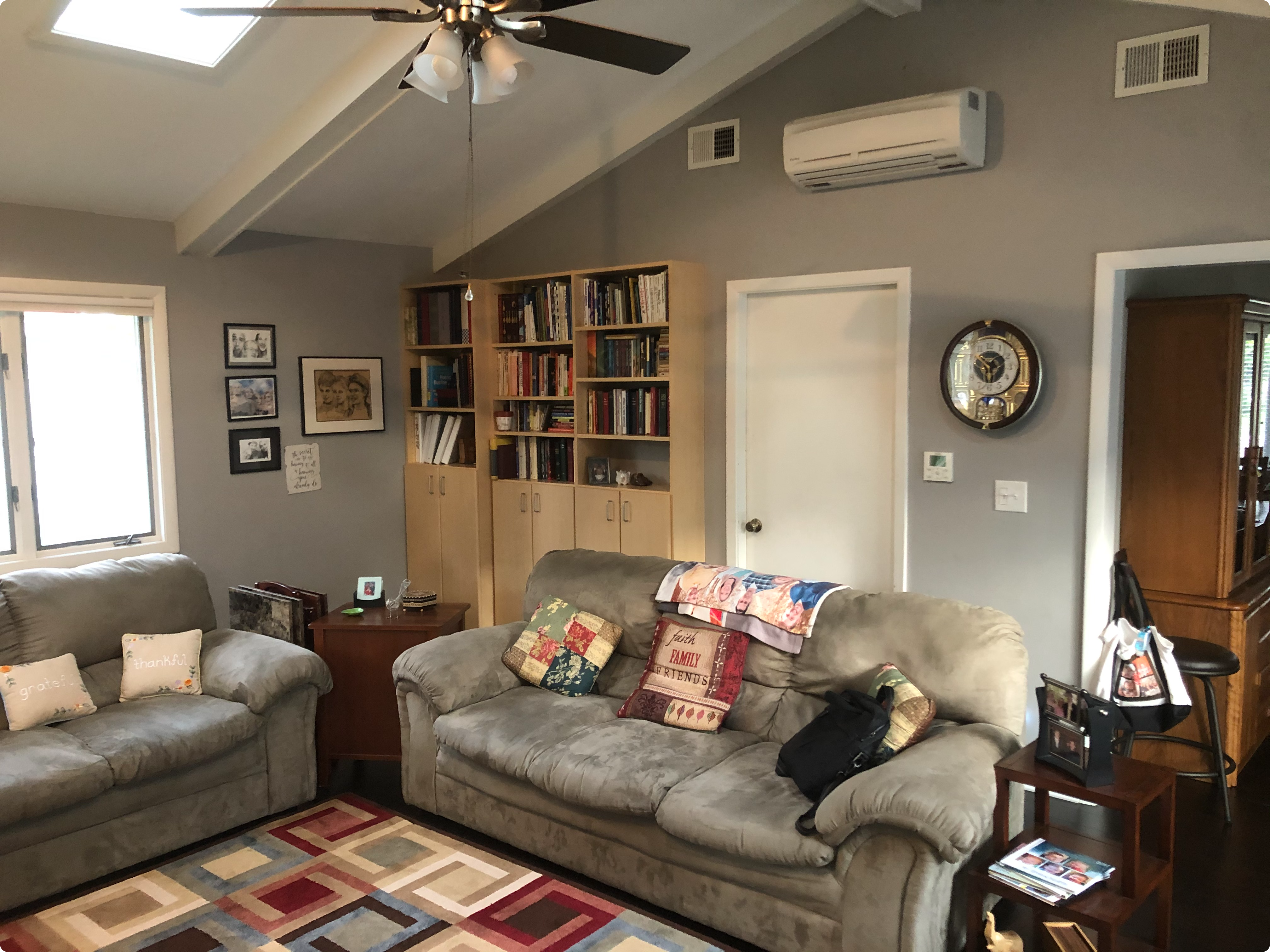 Your nose knows! A funky smell coming from your mini split is a sign of a problem. Depending on the odor, it could be anything from an electrical issue to mold infestation to a problem outside your home.
Your nose knows! A funky smell coming from your mini split is a sign of a problem. Depending on the odor, it could be anything from an electrical issue to mold infestation to a problem outside your home.
No matter the cause (or the stench), it’s always important to investigate it right away. Even though the problem could be small and easy to fix, it won’t remain that way.
Minor issues get more severe over time. If you ignore it for too long, you’ll end up paying a lot more for a more extensive repair.
Even worse, you’ll compromise the indoor air quality in your home: The air you breathe will be less healthy and can make you sick.
But the good news is that it’s a simple fix most times. And, with mini splits, in particular, a good deep-cleaning clears up most issues with one last visit.
We’ll walk you through troubleshooting based on what you’re experiencing. If you think you need a cleaning or have more questions about the system in your Kuna, ID home — or any house or business in the Treasure Valley — call HydroKleen208 at (208) 779-5596.
We’ll answer all your questions and help you decide if it’s time for a cleaning.
Four Common Mini Splits Smells And What Do Do About Them
These are the four most common odors people notice coming from their mini split:
- Chemicals Or Vinegar
- Seafood Or Fish
- Sewage Or Rotten Eggs
- Stale Or Cheesy
We’ll explain what each means and what you should do about them.
Mini Split Smells Like Chemicals Or Vinegar
Electrical problems inside an air handler cause a smell people describe as “chemical” or sometimes like white vinegar. The strong, sharp odor usually means something’s overheating or burning inside the unit.
You can investigate this by looking for brown droplets after taking off the cover and filter. They may look like animal droppings, but what you’re seeing is the sign of something melting and dripping off deeper inside the unit.
Related: 5 Reasons You’ll Love A Mini Split Cleaning
Turn off that air handler if you notice this, and check the others as well. And call your HVAC company right away. It’s nothing you can fix yourself, and you risk major damage if you leave it unattended.
Mini Split Smells Like Seafood Or Fish
Animal remains near your heat pump or air handlers result in your mini split producing a smell similar to seafood or fish. The scent comes from bacteria and other contaminants from the decomposing body.
Start by checking outside near the heat pump. Next, sniff near the walls around your air handler for any natural decaying smells.
It’s worth clarifying a difference here between ductless systems and conventional central air: A fish smell in traditional forced-air systems is usually the sign of an electrical problem, while a rotten egg smell often means a dead animal.
But, as you’ve seen already, these odors mean different problems for mini splits.
Mini Split Smells Like Sewage
A sewage smell coming from your mini split indicates a wastewater problem somewhere in or around your home. There’s a broken sewage pipe, and your HVAC system is circulating the odor.
Once again, turn off the system and check around the house for more odors. Sniff around outside, too.
And, if you feel weak, dizzy, or nauseous, open all the windows and call your HVAC contractor or plumber immediately. A sewage problem can also result in methane gas exposure.
Mini Split Smells Stale Or Cheesy
A stale or cheesy mini split smell is a sign of a mold problem. It’s called Dirty Sock Syndrome because people often describe it as smelling like an old gym bag. The cause is mold and mildew building up inside the air handler, usually on the coil.
It’s pretty common: Your air handler is warm from all the electronics at work, and there’s no light in there. When you combine that with the moisture from the air condensing inside it, you end up with a perfect breeding ground for mold.
The best way to get rid of the problem is with a deep cleaning, and we’ll discuss that in more detail later.
Regular Maintenance For Mini Splits Prevents Odors
You can head off most mini split odors with some easy preventative maintenance:
- Cleaning The Air Filter
- Annual Tune-Ups
- Deep Cleaning
Related: How Often Should A Mini Split Be Cleaned?
Clean The Air Filter
Take the reusable air filters out of your air handlers once a month and clean them out. This gets rid of all sorts of dust, dirt, and debris. And it improves airflow, which in turn prevents other buildup inside the system.
Related: Six Telltale Signs Your Mini Split Needs Cleaning
Annual Tune Ups
Call an HVAC company in the spring for a tune-up. That’s when they inspect and clean out your system. You’ll need one in the fall, too, if your mini split heats your home as well. A quick visit heads off all sorts of problems.
Deep Cleaning
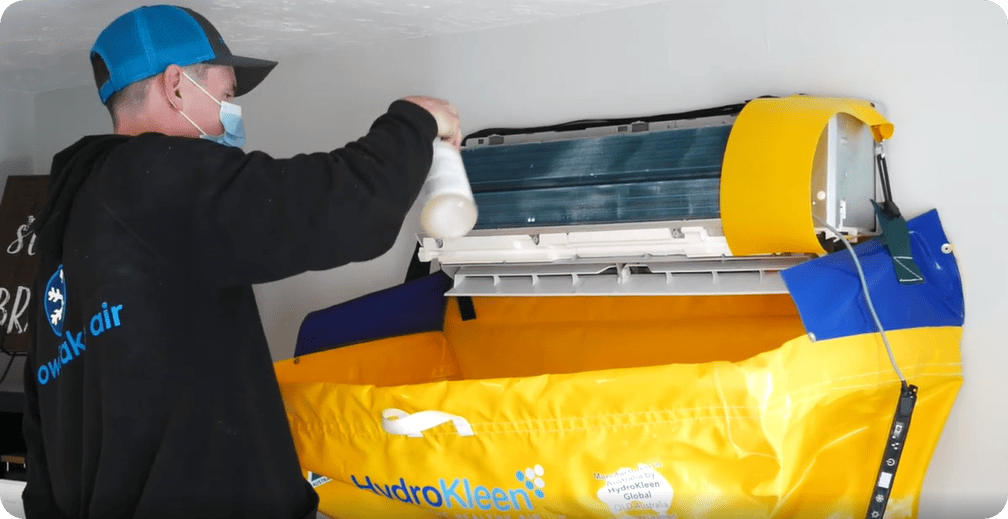
A deep cleaning goes much further than a tune-up when it comes to cleaning your system. A regular HVAC contractor may clear some surface dirt but can’t get too far into the units.
Instead, HydroKleen208 uses specialized tools and non-toxic, environmentally-safe cleaners to flush out your entire system without taking it apart.
It’s the best way to be sure your air isn’t filled with mold spores, allergens, and other microbial contaminants circulating from your mini split.
Related: What Does It Cost To Clean A Heat Pump?
Mini Split Cleaning In Kuna, ID
HydroKleen208 is the worldwide industry leader for mini split cleaning in Kuna, ID and across the Treasure Valley. We bring more than ten years of dedicated research and development to every visit. Call us at (208) 779-5596 or click below to set your appointment.


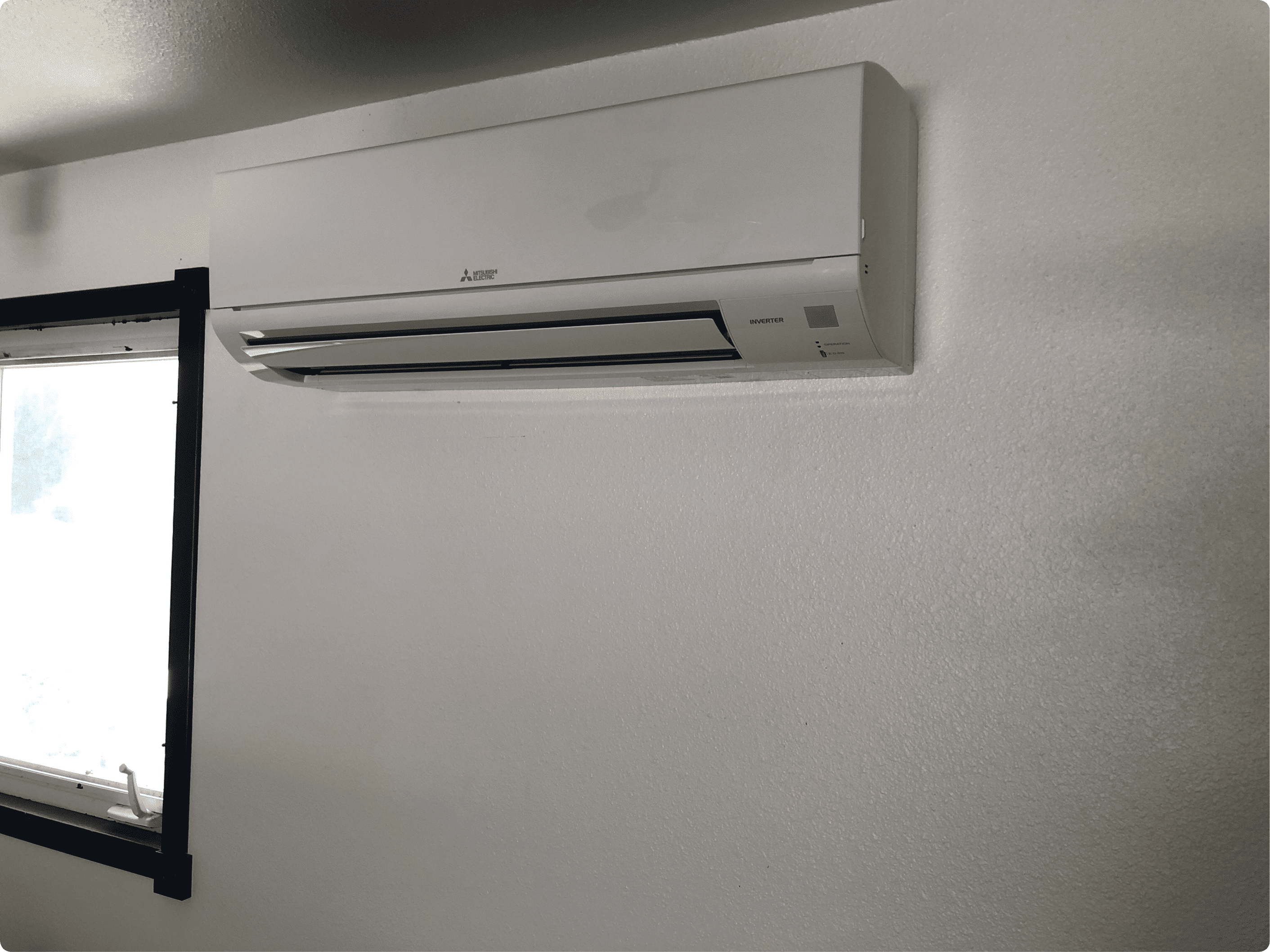 Even though forced-air systems are more common, ductless systems are becoming more popular. That’s especially so here in Boise and up in Valley County.
Even though forced-air systems are more common, ductless systems are becoming more popular. That’s especially so here in Boise and up in Valley County. 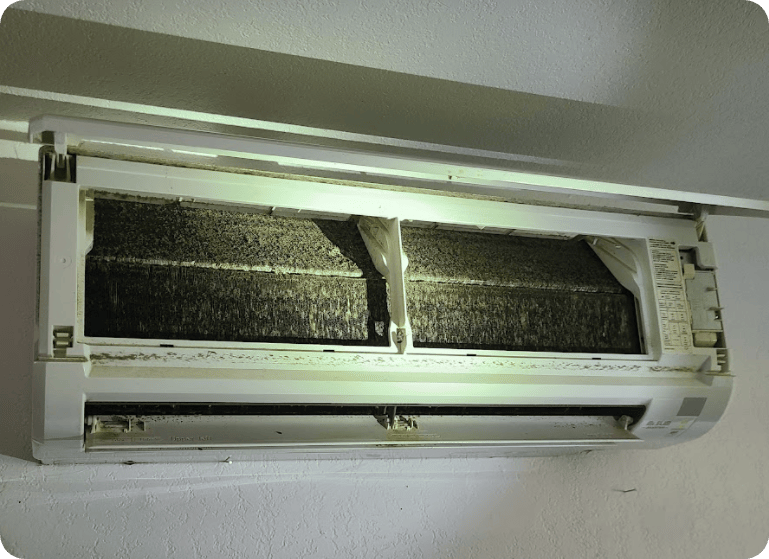
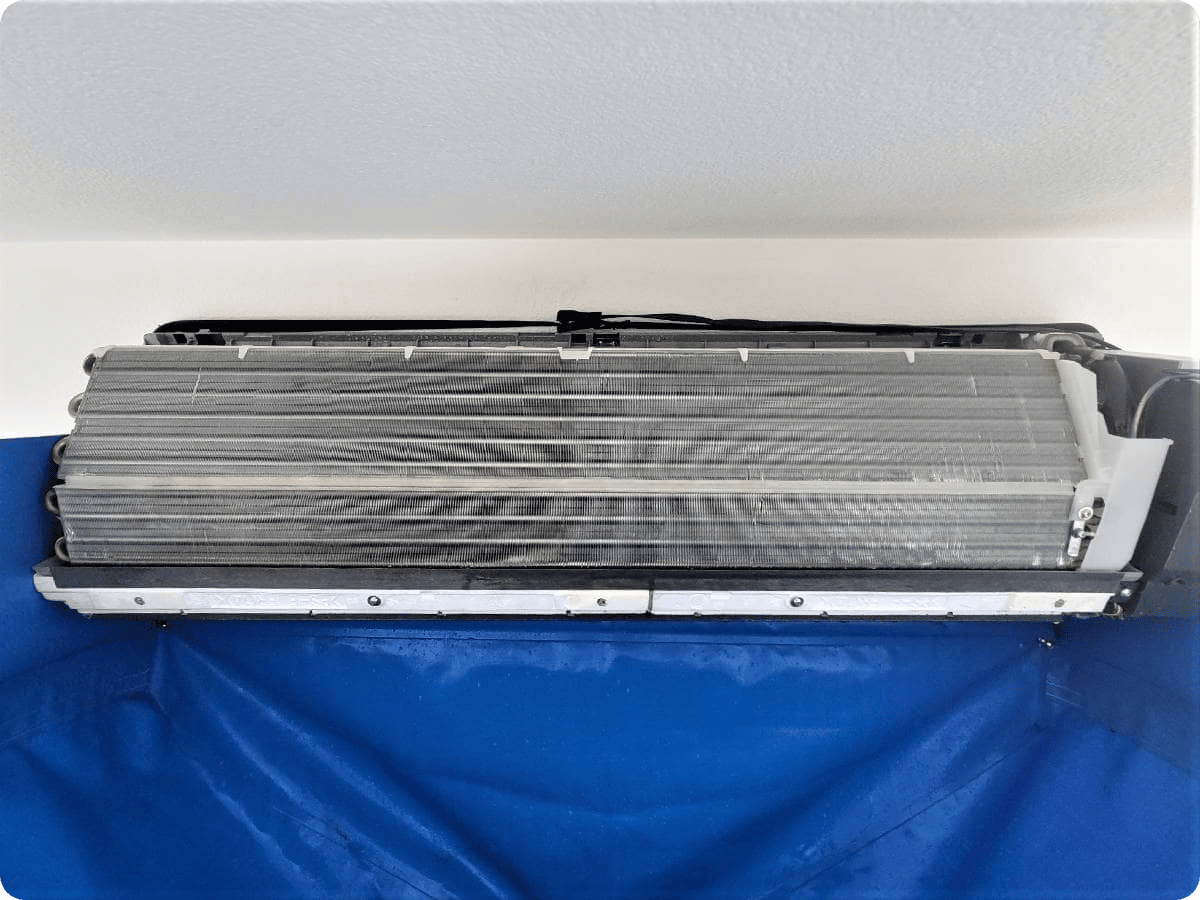
![Don't Touch The Thermostat! [Office Comfort & Indoor Air Quality]](https://hydrokleen208.com/wp-content/uploads/2022/01/Ductless-Filters-Rounded-Compressed.png) Thermostat wars in the office are a real problem. It’s common to hear about employees changing the temperature behind their coworkers’ backs — and then someone else adjusting it again.
Thermostat wars in the office are a real problem. It’s common to hear about employees changing the temperature behind their coworkers’ backs — and then someone else adjusting it again.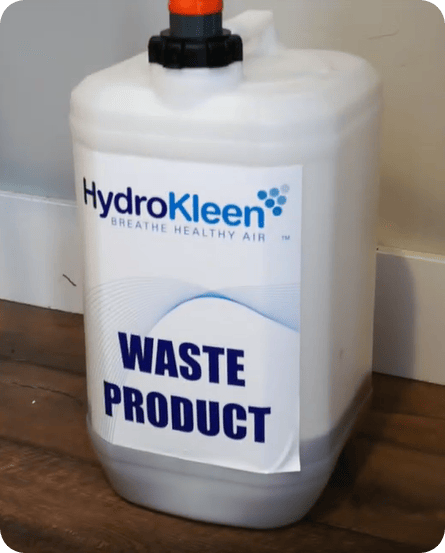 It can even reduce problems for people with asthma. And, yes, a cleaning may even help put an end to people fighting over the thermostat.
It can even reduce problems for people with asthma. And, yes, a cleaning may even help put an end to people fighting over the thermostat.